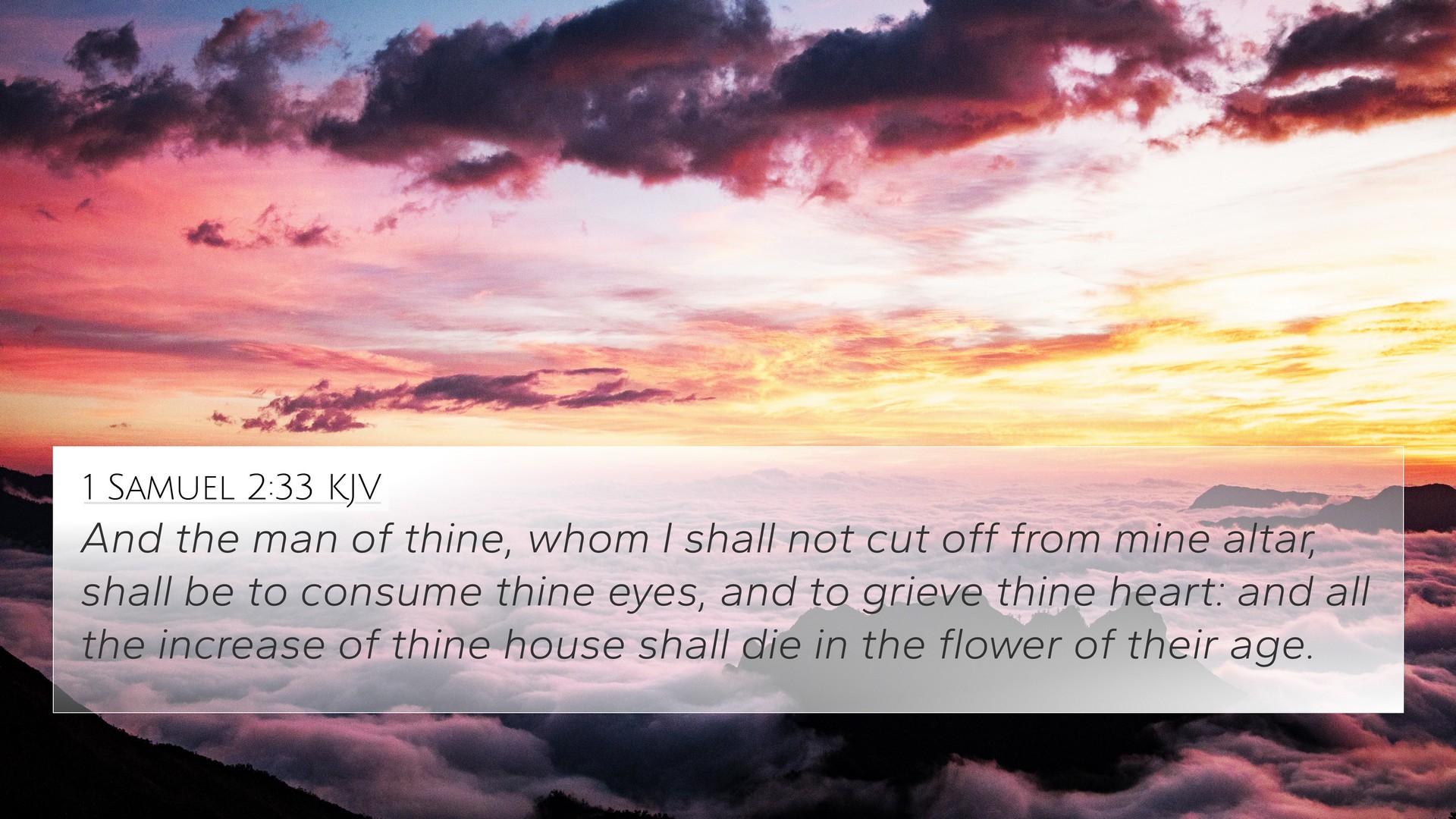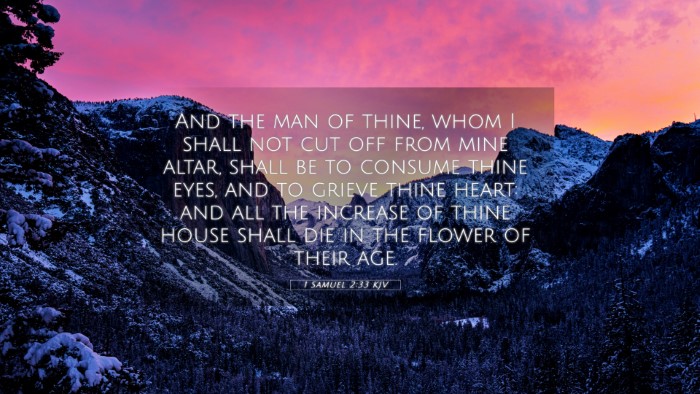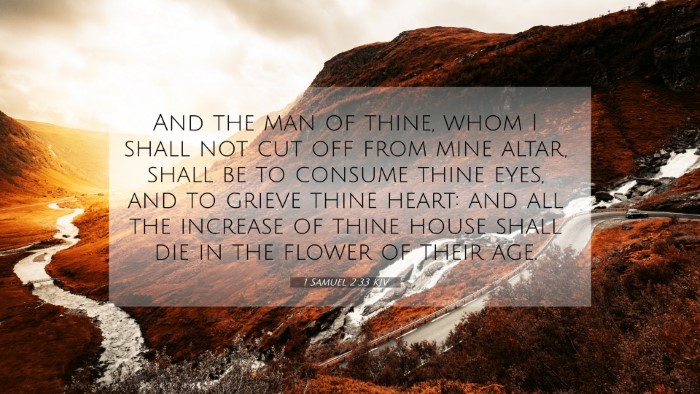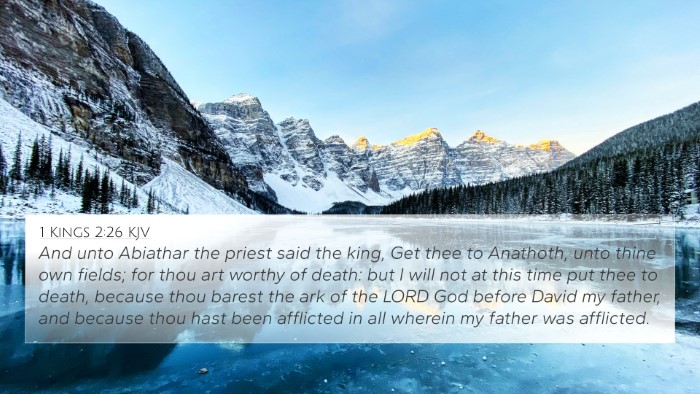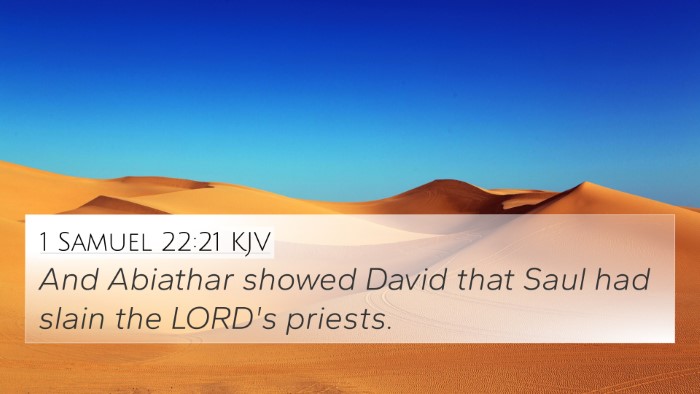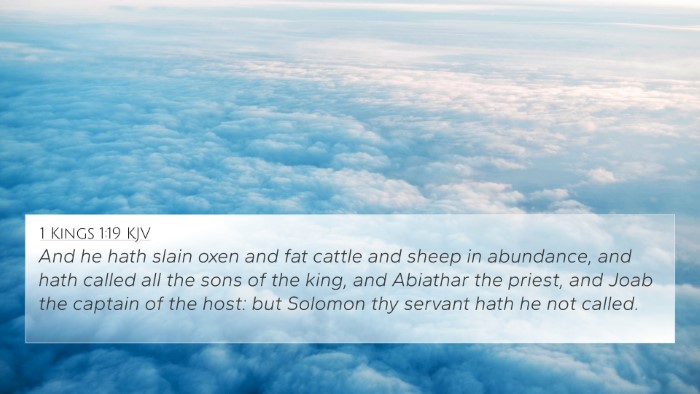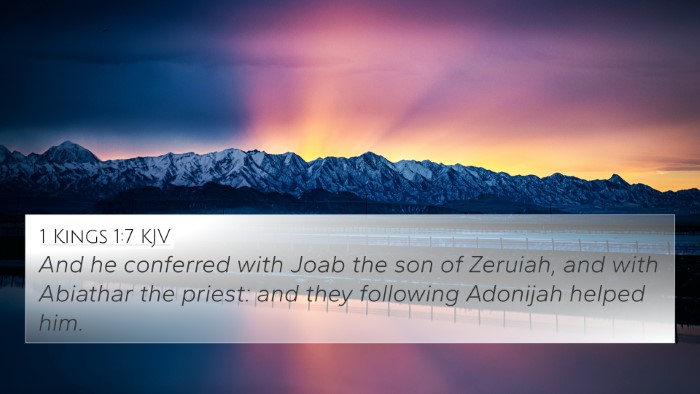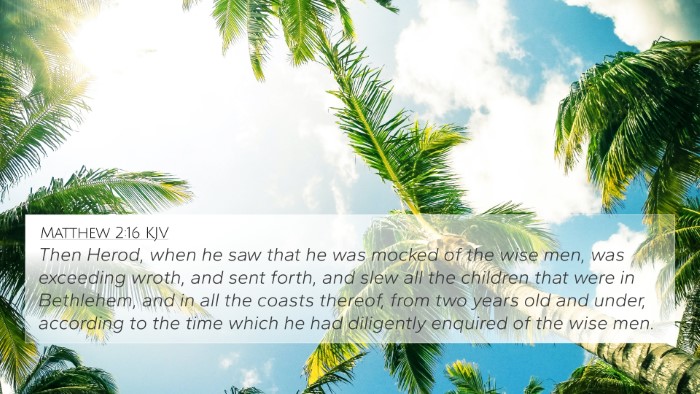Understanding 1 Samuel 2:33
Verse: "And as for you, your two sons, Hophni and Phinehas, shall be the sign of what will happen to your house; they shall die in one day."
Contextual Background
This verse comes in the context of God speaking through a man of God to Eli, the high priest. The message conveyed is one of judgment due to the corruption and sins of Eli’s sons, who were abusing their priestly privileges. The prophecy foretells dire consequences for Eli's household, signaling a transition in the priesthood.
Commentary Insights
Several commentaries provide insight into the meaning and implications of this verse:
- Matthew Henry: Emphasizes the severity of divine judgment. Henry interprets the deaths of Hophni and Phinehas as a significant warning to the house of Eli. He suggests that this death is not merely about punishment, but a clear sign of God's displeasure with Eli's failure to restrain his sons.
- Albert Barnes: Discusses the prophetic nature of this verse. According to Barnes, this prophecy signifies the end of Eli’s family line serving as priests. Barnes highlights that this serves to show that God's judgment is imminent and that the accountability of leaders is vital in the eyes of God.
- Adam Clarke: Provides a detailed analysis of the context and future implications of the prophesied events. Clarke explains that the suddenness of the deaths serves as a showcase of God's sovereignty and a call for reverence among His people, reinforcing that God does not take sin lightly.
Significance of the Verse
This verse serves as a poignant reminder of accountability in spiritual leadership. The fates of Hophni and Phinehas are meant to instill fear and respect for God’s holiness and justice. Additionally, it represents the consequences of unchecked sin and rebellion against divine standards.
Cross-References and Related Scriptures
To gain a deeper understanding of 1 Samuel 2:33, one can cross-reference with:
- 1 Samuel 2:30: "Therefore the Lord, the God of Israel, declares: 'I promised that your house and your father's house would minister before me forever.' But now the Lord declares: 'Far be it from me! Those who honor me I will honor, but those who despise me will be disdained.'
- 1 Samuel 4:11: "And the ark of God was captured, and the two sons of Eli, Hophni and Phinehas, both died."
- Numbers 3:10: "And you shall appoint Aaron and his sons, and they shall guard their priesthood." This emphasizes the importance of maintaining holiness among the priestly class.
- Hebrews 5:4: "And no one takes this honor for himself, but only when called by God, just as Aaron was." This highlights the divine authority of the priesthood.
- Matthew 23:8-9: "But you are not to be called rabbi, for you have one Teacher, and you are all brothers. And call no man your father on earth, for you have one Father, who is in heaven." This emphasizes the integrity required in spiritual leadership.
- Jeremiah 23:1-2: "Woe to the shepherds who destroy and scatter the sheep of my pasture! declares the Lord." Again illustrating the accountability of leaders.
- Ezekiel 34:10: "Thus says the Lord God: Behold, I am against the shepherds, and I will require my sheep at their hand." Reinforcing God's demand for responsible shepherding.
Conclusion
The analysis of 1 Samuel 2:33 through various theological perspectives underlines the gravity of spiritual leadership and the consequences of failing to uphold divine standards. This verse serves as a poignantly stark reminder not only to those in positions of authority but also to all believers about the holiness of God and the reality of divine judgment.
Thematic Connections
This scripture invites further thematic exploration on leadership, accountability, and divine judgment within the greater narrative of the Bible. Cross-referencing these texts can provide a fuller understanding of the principles God communicates throughout Scriptures. A thorough cross-reference analysis, including the tools for Bible cross-referencing, can enrich one's study and facilitate deeper insights into God's Word.
Recommended Study Approaches
For those interested in a deeper level of exploration, consider the following methods:
- Use a Bible concordance: to identify themes and connections regarding the priestly line and God's judgment.
- Engage in thematic Bible verse connections: to see how divine judgment is portrayed throughout both the Old and New Testament.
- Utilize a cross-reference guide: to find similarities in teachings across various scripture passages.
- Participate in cross-referencing Bible study sessions: to collaboratively explore how various texts interrelate.
